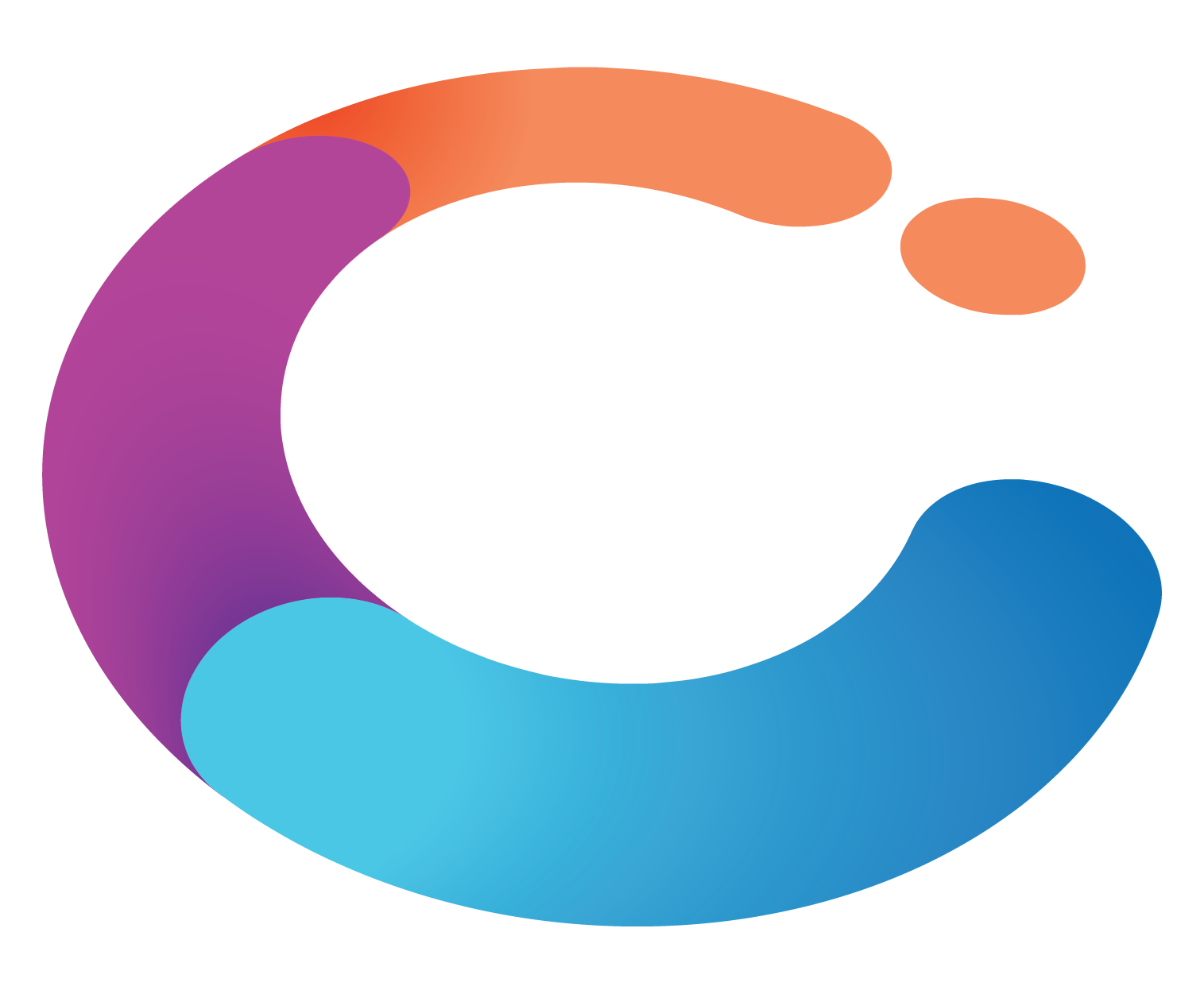Top 10 Interview Questions and How to Effectively Answer Them
Overview The article examines how to effectively respond to the top 10 interview questions to improve a candidate's chances of success. It...
Engage
|
Hire
|
Develop
|
Assure
|
|
Deeply understand your organisation with science-backed analytics on your culture, team design, and engagement. |
Automatically match to candidates who are a great fit for your team culture and who are intrinsically motivated to succeed. |
Back your onboarding, compliance and skill development with industry-leading credentialling, competency and capability expertise.
|
Reimagine skills assessment and certification with dedicated tools designed to elevate your competency frameworks.
|
.png?width=383&height=200&name=team%20(1).png)
18 min read
 Compono
Mar 27, 2025 12:52:14 PM
Compono
Mar 27, 2025 12:52:14 PM

The article serves as a comprehensive guide to the most prevalent interview questions and effective strategies for addressing them. It underscores the significance of personal storytelling, conducting thorough company research, and aligning individual career aspirations with the objectives of the organisation. By showcasing specific techniques—such as:
candidates can markedly improve their chances of success in interviews. These practices resonate positively with hiring managers and reflect a genuine interest in the role.
In the competitive landscape of job interviews, candidates must navigate a series of challenging questions designed to assess their qualifications and fit for the role. This preparation is crucial as it allows candidates to articulate personal narratives that highlight their achievements and demonstrate knowledge about the company. Each response significantly shapes the interviewer's perception.
As organisations increasingly prioritise cultural fit and alignment with values, understanding how to effectively communicate strengths, weaknesses, and career aspirations becomes essential. This article delves into key strategies for mastering common interview questions, offering insights and expert advice to enhance candidates' chances of success in securing their desired positions.
When responding to interview questions such as 'Tell me about yourself,' structuring your answer effectively is crucial. Start with your background, emphasise key achievements, and express what motivates you professionally. For example, you could say, 'I have over five years of experience in digital marketing, where I successfully led campaigns that increased brand awareness by 30%. I am passionate about using data-driven strategies to enhance customer engagement, which aligns with your company's focus on innovative marketing solutions.' Crafting a personal narrative can significantly influence your responses to interview questions. Research indicates that individuals who effectively share their stories can improve their chances of securing a job offer.
In fact, referrals can enhance the probability of a successful job match from 2.6% to 6.6%, highlighting the impact of personal connections and narratives in the recruitment process. Furthermore, it is essential to acknowledge that the likelihood of obtaining a meeting is reduced by 2.1% for individuals with Black names compared to those with white names, indicating potential biases in the hiring process. Moreover, typically, only around one in five applicants, or 20%, who participate in the selection process secure the position, underscoring the competitive nature of job applications.
A study on stress and performance during technical evaluations revealed that live assessments can increase stress and cognitive load, potentially reducing applicant performance by up to 50%. This underscores the importance of creating a supportive environment where applicants can effectively showcase their abilities. To craft a compelling personal narrative that successfully addresses interview questions, consider the following tips:
Expert opinions suggest that 40% of interviewers believe a candidate's overall confidence significantly influences their hiring decisions. Therefore, practicing your narrative can enhance your confidence and delivery. In summary, personal storytelling is not merely a method to respond to interview questions; it serves as a strategic tool that can improve your overall interview performance and increase your chances of success.
To effectively respond to the question about what you know regarding the organisation, it is crucial to include specific details that demonstrate your understanding and interest in the company’s innovative HR solutions. Highlight aspects such as the organisation's mission to map culture and engagement with science-backed insights, recent projects, or its standing within the industry. For example, you might say, 'I admire Company's commitment to optimising candidate matching through predictive insights, which aligns with my values and my previous work in talent acquisition.'
Researching a company before a meeting is not just beneficial; it is essential. Statistics indicate that 22% of hiring managers believe that receiving a thank-you note referencing specific company details significantly influences their decision-making. Moreover, only around 20% of individuals who are assessed successfully obtain a position, highlighting the competitive aspect of the job market and the necessity of extensive preparation.
This competitive environment is further emphasised by case studies indicating that efficient selection processes, which are well-structured, are vital for both employers and job applicants.
Employers increasingly appreciate individuals who exhibit understanding of their organisation. In fact, a significant percentage of employers consider an applicant's understanding of the company as a key factor in their recruitment choices. To effectively research the company, consider the following strategies:
When preparing for discussions, focus on how to articulate your knowledge of the organisation. A well-prepared response to the question, 'What do you know about our company?' can distinguish you from other applicants.
For example, you could refer to particular products or services that align with your professional experience or personal principles, such as the company's focus on compassionate leadership and employee growth.
Case studies show that individuals who spend time researching organisations like this one tend to excel in interviews when they practice interview questions with answers. By demonstrating a genuine interest and understanding of the organisation, you not only enhance your chances of success but also position yourself as a thoughtful and engaged potential employee. Expert opinions suggest that this level of preparation can significantly impact the interviewer's perception, as 40% of interviewers agree that an applicant's overall confidence, often bolstered by thorough preparation, affects their hiring decisions.
Grasping the dedication to employee engagement and development can enhance your standing as an applicant.

When answering questions, it is essential to articulate how the role aligns with your career aspirations, particularly in a company like Compono that emphasises a people-centred career framework. For example, one might express, 'I am excited about this position because it offers the opportunity to lead innovative projects that drive customer engagement, which is a key area I want to develop further in my career.' This approach demonstrates enthusiasm for the role while highlighting a commitment to contributing to the organisation's goals, especially within a supportive work environment that fosters growth and progression.
Research indicates that individuals who effectively communicate their career objectives during interviews are more likely to receive job offers. Aligning personal career goals with company objectives can significantly enhance job acceptance rates. A recent study found that employees who feel their personal values resonate with their employer's mission report higher job satisfaction levels, which is essential for long-term retention.
This is particularly relevant in today's work environment, where remote workers save approximately £4,000 per year, leading to increased satisfaction with their compensation and overall work experience. Expressing enthusiasm for the position is equally important. Experts suggest that individuals who convey genuine interest in the role and the company culture are more likely to stand out in a competitive job market. This enthusiasm can be a determining factor for recruiters, as it reflects an applicant's potential for engagement and productivity.
Engaging employees in goal setting boosts commitment and innovation, resulting in improved organisational outcomes, which is a fundamental element of the company's approach to employee engagement.
To effectively align your career objectives with job opportunities, consider the following strategies:
Case studies have shown that individuals who align their career objectives with job roles not only secure positions more effectively but also experience greater job satisfaction. For instance, Nikki Ward from The Coffee Club highlighted, 'The platform's ability to create consistent hiring processes and enhance overall employee satisfaction' emphasises the significance of alignment in discussions, reflecting Compono's dedication to effective workforce management.
In conclusion, expressing your career aspirations during discussions is not merely about obtaining a job; it is about discovering a position that nurtures your professional development and aligns with your values. By articulating your career aspirations clearly, you position yourself as someone who is not only qualified but also genuinely invested in the success of the organisation.

When preparing for an interview, providing concrete examples of past experiences is crucial. These examples can serve as effective responses to interview questions related to the job you are applying for. For instance, you might say, 'In my last role as a project manager, I led a team that successfully launched a new product line, resulting in a 20% increase in sales. This experience has equipped me with the skills to manage cross-functional teams effectively.' Such specific examples not only demonstrate your capabilities but also illustrate your impact in previous roles, similar to how interview questions can reveal a candidate's strengths.
Statistics indicate that a positive applicant experience significantly boosts a company's reputation and increases the likelihood of job offer acceptance. This underscores the significance of optimising procedures to improve applicant engagement, aligning with Compono's organised recruitment process.
Moreover, professional guidance emphasises the importance of presenting past experiences when preparing for interview questions. Candidates should focus on how their previous roles can provide strong responses to interview questions regarding job requirements. For instance, if applying for a sales position, discussing how your experience in customer service taught you valuable skills in understanding client needs and building relationships can be beneficial. Case studies further illustrate the effectiveness of this approach.
Compono offers valid, reliable assessments, enabling organisations to conduct assessments online securely. This ensures fair and consistent evaluations while delivering real-time validation and insights that drive performance excellence. Candidates who effectively relate their past experiences to job roles often stand out. For instance, an applicant might convey how their experience in a fast-paced environment equipped them for the challenges of a new position, showcasing adaptability and resilience.
As Nikki Ward from The Coffee Club remarked, 'The platform's capacity to establish consistent hiring processes and enhance overall employee satisfaction' highlights the significance of a structured method for assessments. Providing concrete examples not only strengthens your narrative but also allows interviewers to visualise your contributions when considering interview questions. By expressing your experiences clearly and confidently, you can significantly improve your chances of leaving a lasting impact during the selection process.
Additionally, understanding the effect of the Employee Value Proposition, DEI policy, and clear role understanding on withdrawn individuals' NPS can further guide your strategy. By utilising the tools provided, individuals can gain insights into their competencies and suitability for positions, thereby improving their preparation and relevance in the selection process. The organised recruitment process at the company involves a phone screening with the People team, followed by discussions with the recruiting manager and pertinent team members, ensuring a thorough assessment of applicants.
Furthermore, Compono utilises predictive insights to match candidates with roles that align with their skills and experiences, optimising the recruitment process.
When discussing strengths in a job interview, it is crucial to have specific interview questions paired with answers. Tailoring your strengths to align with job requirements is essential. For instance, you might state, 'One of my key strengths is my ability to analyse data and derive actionable insights. In my previous role, I utilised data analytics to optimise our marketing strategy, which led to a 15% increase in ROI.' This not only showcases analytical skills but also demonstrates the impact on the organisation.
Highlighting unique skills can significantly influence hiring decisions. Research indicates that candidates who effectively communicate their strengths are more likely to be remembered positively by interviewers. In fact, 38% of evaluators have expressed unexpected sentiments, such as saying 'Love you' at the end of discussions, underscoring the emotional connection formed through effective communication.
To identify and articulate your strengths, consider feedback from peers and supervisors. This can help pinpoint growth opportunities and frame weaknesses constructively. For example, if public speaking is a challenge, you might say, 'I recognise that public speaking is a challenge for me, but I have taken steps to improve by participating in workshops and seeking opportunities to present in smaller settings.' This approach demonstrates self-awareness and a commitment to personal growth.
Effective strategies for handling interview questions include preparing examples that illustrate strengths in action. Compono's organised hiring process consists of several evaluation stages:
After these stages, an offer is pending a police check and two reference checks. This comprehensive approach ensures applicants can showcase their strengths effectively while allowing HR managers to evaluate their fit within the team.
A case study on best practices for virtual discussions highlights the importance of a professional setting and clear communication. By ensuring a reliable internet connection and providing applicants with clear instructions, organisations can create a positive evaluation experience that allows individuals to present their strengths confidently.
Incorporating expert opinions can further enhance preparation. Many HR professionals emphasise the significance of being collaborative, detail-oriented, and positive during assessments. These traits resonate well with employers seeking team players who contribute to a positive workplace culture. By focusing on these strengths, candidates can position themselves as valuable assets to potential employers. As Nikki Ward observed, Compono's capability to establish consistent recruitment methods and boost overall employee satisfaction highlights the significance of organised techniques in assessments, enhancing HR strategies through collaboration and mentorship.

When discussing weaknesses in a job conversation, selecting a genuine shortcoming that won't undermine your candidacy is crucial. For instance, you might say, 'I tend to be overly critical of my work, which can slow down my progress. However, I have been actively working on this by setting more realistic expectations and seeking feedback from colleagues to gain perspective.' This method illustrates honesty and highlights your dedication to personal development.
Self-awareness is essential in discussions, significantly impacting hiring choices. Studies indicate that 93% of applicants experience anxiety during evaluations, with 41% particularly concerned about responding to challenging inquiries. This anxiety can be alleviated by preparing thoughtful responses that reflect self-awareness.
Expert advice suggests framing weaknesses in a way that highlights proactive measures for improvement. For example, discussing a tendency to be overly critical can be paired with specific strategies you've implemented to mitigate this issue, such as seeking constructive feedback or setting achievable goals.
Statistics reveal that 67% of recruiters believe maintaining eye contact is essential for making a good impression, further emphasising the importance of being present and engaged during the assessment process. Demonstrating self-awareness not only aids in articulating your weaknesses but also fosters a connection with the interviewer, as they can see your willingness to grow and adapt.
A case study illustrates how organisations can conduct fair and consistent evaluations through valid assessments. This module ensures that candidates are evaluated on their competencies, allowing for a more impartial selection process.
By incorporating self-awareness into your responses, you align yourself with the qualities that employers seek, ultimately enhancing your chances of success. As Pleas Andrew Honeywood, a Job Coach and Career Content Strategist, notes, 'Sometimes, an interviewer will talk to a dozen people who have the minimum core baseline skills. So the selection decision will come down to who the interviewer 'likes more' and feels would be a better cultural fit.' This emphasises the significance of first impressions and cultural alignment in the hiring process.
Moreover, it typically requires three weeks for an official job offer to be extended following the final discussion, highlighting the necessity of comprehensive preparation and self-awareness during the evaluation process.
Effective methods for showcasing self-awareness during discussions include:
By doing so, you present yourself as a reflective candidate and increase your appeal to potential employers.

When responding to interview questions about managing stress, it is essential to illustrate your approach with a specific example. For instance, you might say, 'During a particularly demanding project with a tight deadline, I prioritised my tasks by breaking them down into manageable steps. This method not only helped me stay organised but also allowed me to focus on one task at a time, reducing feelings of overwhelm.' Additionally, I practised mindfulness techniques, such as deep breathing and short meditation breaks, which kept me centred and calm, ultimately enhancing my productivity.
Research indicates that workplace stress is a significant concern, with 50% of employees reporting that stress negatively impacts their decision-making abilities. Furthermore, 27% of employees have experienced such intense stress that they felt like crying at work. These statistics underscore the importance of effective stress management techniques in maintaining performance and well-being. The World Health Organisation (WHO) recommends organisational interventions to assess and mitigate workplace risks to mental health, highlighting the need for proactive measures in stress management.
At Compono, we recognise the importance of employee well-being, offering a confidential employee assistance programme to support staff facing work-related stress, team conflicts, or personal issues. This initiative reflects our commitment to fostering a supportive workplace culture. Additionally, our recruitment referral programme incentivises employees to refer applicants, enhancing workforce engagement and collaboration. We also hosted hackathons to inspire creativity and empower our employees, encouraging decision-making across the organisation.
Successful applicants often demonstrate their capacity to handle stress during assessments by sharing personal stories that highlight resilience and adaptability in response to interview questions. Furthermore, after two years of service, all employees receive a portion of their base salary in shares, reinforcing our commitment to long-term employee investment and well-being. By articulating how you handle stress, you not only showcase your problem-solving skills but also your capacity to thrive in challenging situations. This method not only readies you for the meeting but also establishes you as a strong contender who can contribute positively to the workplace culture.
When addressing interview questions about teamwork, it is crucial to provide a concrete example of a successful team project. For instance, you might say, 'In my previous role, I worked with a cross-functional team to launch a new service. My responsibilities included coordinating efforts across various departments, and we not only met our deadline but completed the project ahead of schedule, which significantly enhanced our team dynamics.' This approach not only showcases your collaboration skills but also aligns with the fact that three in four employers consider teamwork and collaboration as 'very important.'
To further illustrate your teamwork abilities, consider discussing the archetypes of team operations, such as cycling teams, relay teams, and rowing teams. Each of these requires distinct focus areas for optimal performance. For example, in a cycling team, individual contributions are vital, while relay teams emphasise seamless transitions. By understanding these dynamics, particularly the function of Advisors who excel in gathering and analysing information, you can articulate your role in fostering collaboration more effectively during discussions.
Moreover, it is essential to recognise the broader implications of poor questioning practices in the context of interview questions. A case study emphasises that unproductive discussions can result in applicants rejecting offers or not reapplying because of unsuitable queries. Gallup estimates that replacing an employee can cost 1.5 to 2 times their salary, underscoring the critical need for effective teamwork discussions during interviews, where incorporating relevant questions can also strengthen your responses.
As noted by Aaron De Smet, a senior partner at McKinsey, 'The road to better team effectiveness is a continuous journey, both for the teams themselves and the organisation at large.' This viewpoint emphasises that exhibiting teamwork abilities is not solely related to previous experiences but also involves a dedication to continuous enhancement and adaptability in addressing challenges, which are vital characteristics of the Advisor personality type.
Ultimately, displaying your teamwork and collaboration skills during assessments is crucial, as these capabilities greatly affect hiring choices. Providing specific examples, understanding team dynamics, and referencing expert insights can set you apart as a candidate who not only values collaboration but also actively contributes to it, particularly by leveraging the strengths of diverse personality types like Advisors.
To effectively collaborate with Advisors, remember to:
By adhering to these guidelines, you can enhance team dynamics and ensure that Advisors feel valued and empowered in their contributions.

When discussing your career aspirations in an interview, aligning your goals with the company's vision and objectives is essential, particularly in a people-centred environment. Consider common interview questions and answers. For instance, you might say, 'In five years, I envisage myself in a leadership role within this organisation, contributing to strategic initiatives that drive growth and innovation.' This response not only demonstrates ambition but also reflects your commitment to the company's success and its collaborative culture.
Research indicates that 36% of employees who leave their jobs do so without having another position lined up, underscoring the importance of thoughtful career planning.
By articulating your long-term goals, you signal to potential employers that you are invested in your professional development. This approach enables you to effectively respond to interview questions with answers that demonstrate your commitment to the future of the organisation. Furthermore, it's important to note that 70% of cases where engagement differs significantly is due to management style, emphasising the need for alignment with company values and the role of empathetic leadership in enhancing employee engagement. This can also be articulated effectively when responding to interview questions with answers that clearly outline your goals and how they relate to the company's mission. For example, if the organisation values innovation, mention your desire to lead projects that foster creative solutions, reflecting the flexibility and diverse perspectives valued in Advisor roles.
Show Growth: Discuss how you plan to develop your skills and take on new challenges. This could involve pursuing additional training or seeking mentorship opportunities within the company, aligning with the Advisor's strengths in mentorship and collaboration. Additionally, consider how Compono's structured career framework can support your career progression.
Connect to Company Values: Research the company's culture and values, tailoring your aspirations to reflect them. This alignment enhances your attractiveness as an applicant who fits well within the organisation, particularly in a supportive and nurturing work environment.
During interview questions with answers, successful individuals often share examples of how their aspirations align with the company's trajectory. For instance, a candidate might explain how their goal of enhancing team collaboration aligns with the company's focus on improving employee engagement. This approach not only showcases your understanding of the organisation but also illustrates your proactive mindset.
Statistics reveal that organisations with a strong learning culture are 92% more likely to develop new products, 52% more productive, and 17% more profitable than their peers. By expressing a desire to contribute to such a culture, you position yourself as a valuable asset to the team. Organisations that promote a learning environment are more inclined to innovate and excel, demonstrating the competitive edge of investing in employee growth.
In summary, clearly expressing your career goals during discussions can greatly influence recruitment choices. By demonstrating a clear vision for your future that aligns with the company's goals and values, you enhance your chances of making a lasting impression and securing the position. Additionally, resources and guides are available for enhancing employee engagement and well-being programmes, focusing on the significance of employee recognition and motivation in relation to career aspirations.
Posing thoughtful questions during a discussion is crucial for showcasing genuine interest in both the role and the company culture, particularly within Compono's structured hiring process. This process typically begins with a phone screening conducted by the People team, followed by a first meeting with the Direct Hiring Manager and another relevant team member. Depending on the role, applicants may also undergo technical and psychometric evaluations prior to the second meeting.
For instance, asking, 'Can you describe the team dynamics and how this role contributes to the overall success of the department?' can significantly impact hiring outcomes. Engaging with interviewers through such inquiries not only demonstrates enthusiasm but also provides valuable insights into the workplace environment. Research indicates that 72% of applicants believe the fluidity of the process influences their ultimate decision regarding job offers.
This highlights the importance of active engagement in discussions, fostering a more dynamic and engaging atmosphere. By posing thoughtful inquiries, applicants can facilitate a smoother interview process, benefiting both parties involved. Furthermore, there is a growing preference for skills-focused selection methods, which are perceived as less biased and allow candidates to showcase their expertise.
Compono's use of predictive insights to align individuals with roles that suit their skills enhances the experience and leads to better hiring decisions. Numerous successful examples exist where candidates who asked insightful questions not only impressed their interviewers but also gained a clearer understanding of their potential fit within the organisation. This aligns with findings from the case study 'Skills-Based Hiring Insights,' which underscores the positive impact of skills evaluations on applicant experience.
Expert opinions emphasise the significance of asking interview questions in job discussions. Engaging interviewers with thoughtful questions can help candidates stand out, reflecting their critical thinking and genuine interest in the role. Additionally, data suggests that participant engagement during discussions is directly linked to success in assessments, making it essential for individuals to prepare questions that elicit meaningful responses.
As Niels Rozemeijer noted, '65% of satisfied applicants are likely to do business with you again,' underscoring the long-term benefits of a positive selection experience. Moreover, creating diverse evaluation panels can mitigate unconscious bias, ensuring a more equitable assessment process. This practice not only enhances the interview experience for applicants but also leads to improved recruitment results, aligning with the company's commitment to mapping culture and engagement through evidence-based insights.
Compono's approach to mapping your company across culture, team design, and engagement ensures that the recruitment process is not only effective but also reflective of the organisation's values and goals.
In summary, the ability to engage interviewers through insightful questions is a powerful tool for candidates. It enhances their understanding of the role and positions them as proactive, invested individuals, ultimately contributing to a more successful hiring process.

Mastering job interviews necessitates a strategic approach that highlights a candidate's unique strengths while effectively addressing common questions. The key to success lies in crafting a compelling personal narrative that showcases relevant experiences and aligns with the company's values. Thorough research of the organisation enables candidates to demonstrate genuine interest and a strong understanding of how their aspirations connect with the company's mission.
Articulating career goals and showcasing past experiences relevant to the role significantly enhances a candidate's appeal. Demonstrating self-awareness, particularly when discussing weaknesses, and providing concrete examples of teamwork, stress management, and unique strengths further solidifies a candidate's position. Engaging interviewers with thoughtful questions not only reflects a proactive attitude but also fosters a deeper connection during the interview process.
Ultimately, preparation is paramount in navigating the competitive landscape of job interviews. By employing these strategies, candidates can enhance their confidence, create a positive impression, and significantly increase their chances of securing their desired positions. In today's job market, where cultural fit and alignment with company values are increasingly prioritised, the ability to communicate effectively and authentically is more crucial than ever.
How should I structure my answer to the interview question "Tell me about yourself"?
Start with your background, emphasise key achievements, and express what motivates you professionally. For example, mention your experience, significant accomplishments, and how your passions align with the company's goals.
What impact does personal storytelling have during interviews?
Personal storytelling can significantly influence your responses and improve your chances of securing a job offer. Sharing your narrative helps to create a connection with the interviewer and showcases your qualifications.
How do referrals affect job application success?
Referrals can enhance the probability of a successful job match from 2.6% to 6.6%, indicating the importance of personal connections in the recruitment process.
What is the competitive nature of job applications?
Typically, only about 20% of applicants who participate in the selection process secure the position, highlighting the competitive aspect of job applications.
How can live assessments impact applicant performance?
Live assessments can increase stress and cognitive load, potentially reducing applicant performance by up to 50%, thus emphasizing the need for a supportive interview environment.
What are some tips for crafting a compelling personal narrative for interviews?
Start with a strong opening, highlight key experiences relevant to the job, and conclude with your motivation and how it relates to the company's mission.
How important is confidence during interviews?
About 40% of interviewers believe that a candidate's overall confidence significantly influences their hiring decisions, making practice essential for enhancing confidence and delivery.
What should I include when answering "What do you know about our company?"
Include specific details about the company's mission, recent projects, and its standing within the industry to demonstrate your understanding and interest in the organisation.
Why is researching the company before an interview important?
Researching the company is essential as it helps you articulate knowledge of the organisation, which can distinguish you from other applicants and positively influence hiring decisions.
How can I align my career aspirations with the job I am applying for?
Express how the role aligns with your career goals by preparing specific examples that connect your skills and experiences to the company's objectives and mission.
What is the significance of expressing enthusiasm for the position during an interview?
Conveying genuine interest in the role and company culture can help you stand out in a competitive job market, reflecting your potential for engagement and productivity.
How can aligning personal values with the company's mission impact job satisfaction?
Employees who feel their personal values resonate with their employer's mission report higher job satisfaction levels, which is crucial for long-term retention.

Overview The article examines how to effectively respond to the top 10 interview questions to improve a candidate's chances of success. It...

Overview The article focuses on best practices for HR managers in formulating effective interview questions to enhance the recruitment process. It...

The article emphasizes best practices for crafting effective interview questions, highlighting their critical role in assessing candidates'...

The article delineates best practices for HR managers in formulating effective interview questions that evaluate both candidate qualifications and...

Overview The article outlines best practices for interview questionnaires and answers, highlighting the significance of structured approaches to...

Effective interview questions are essential for evaluating candidates' qualifications, thought processes, and cultural fit. By focusing on...